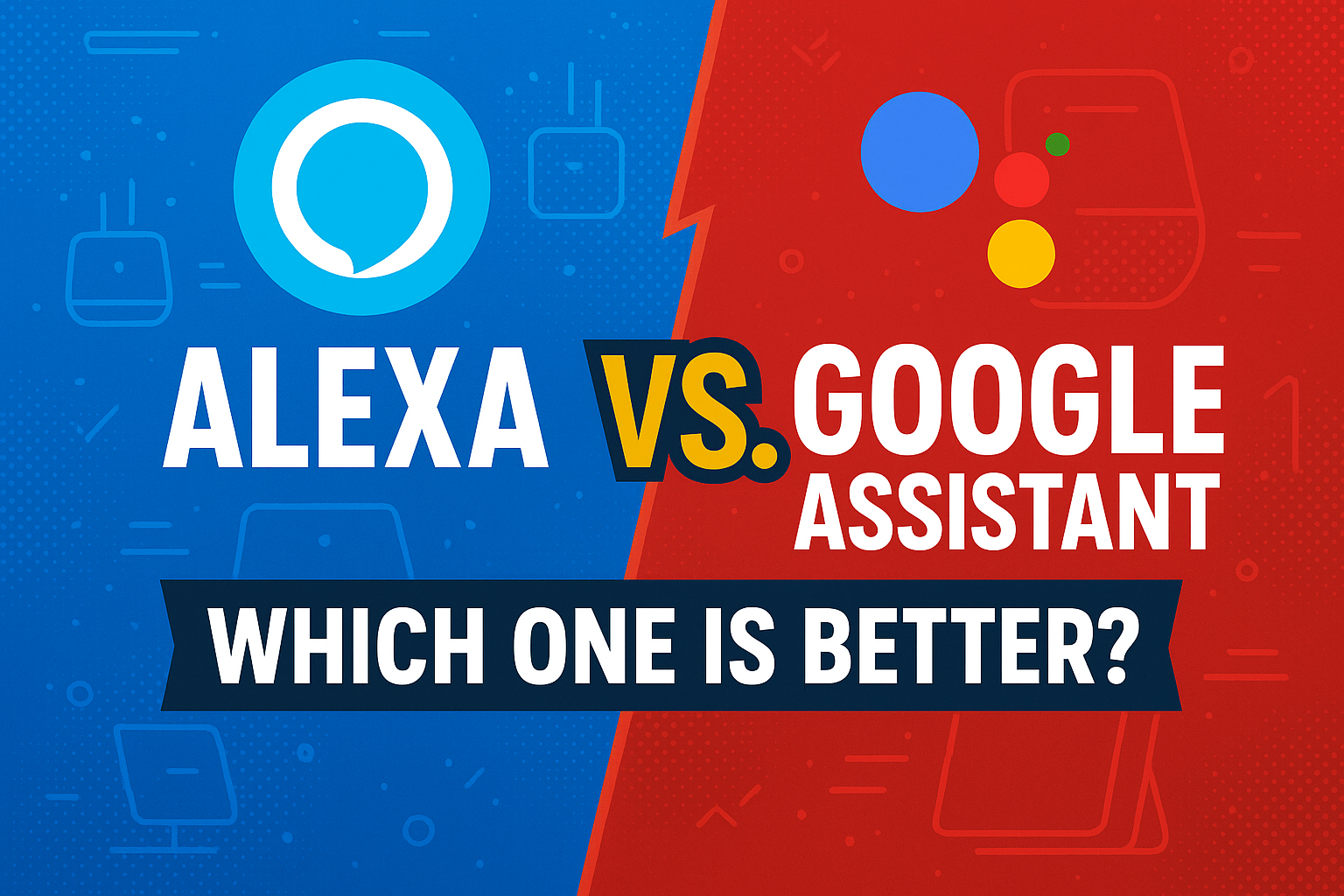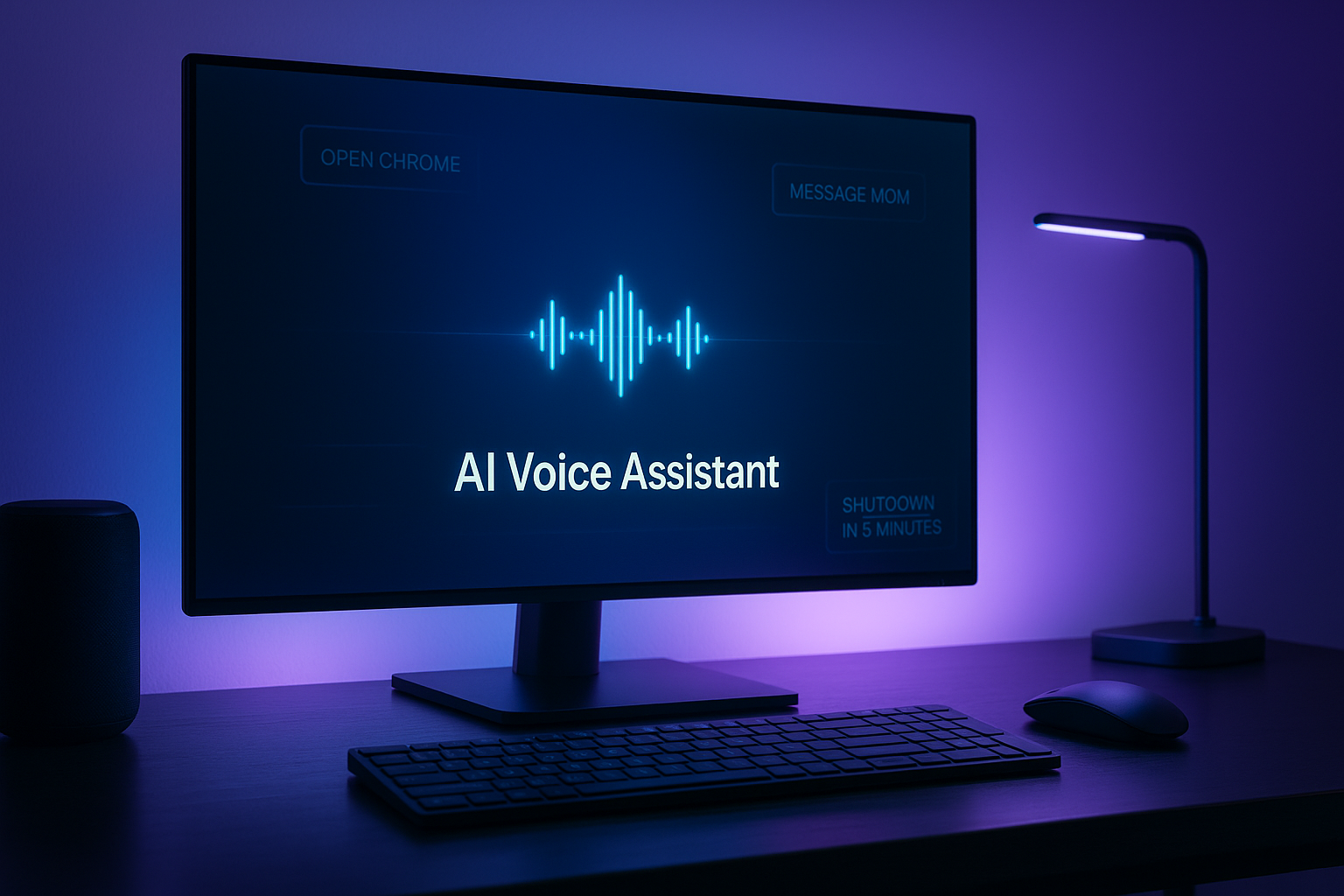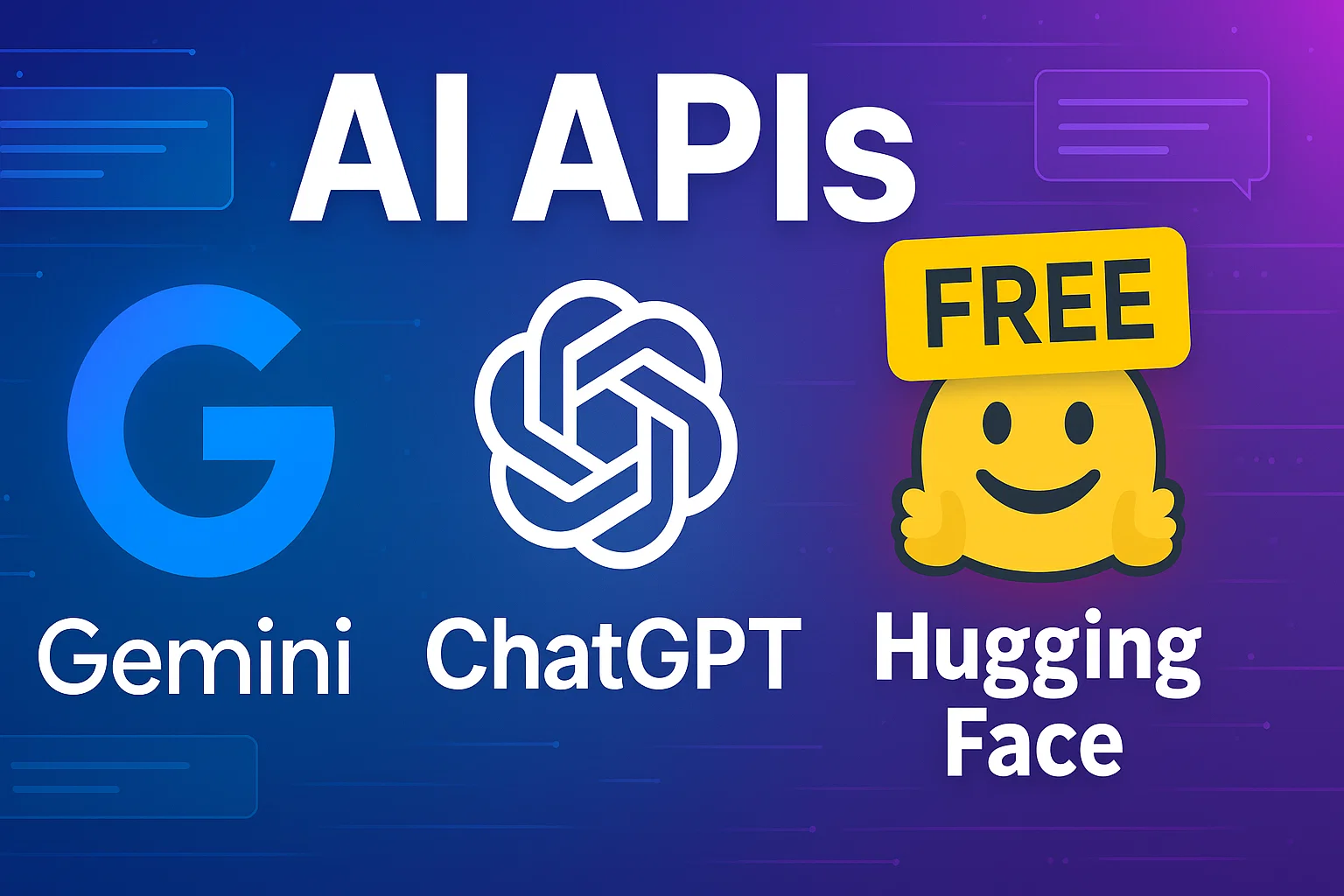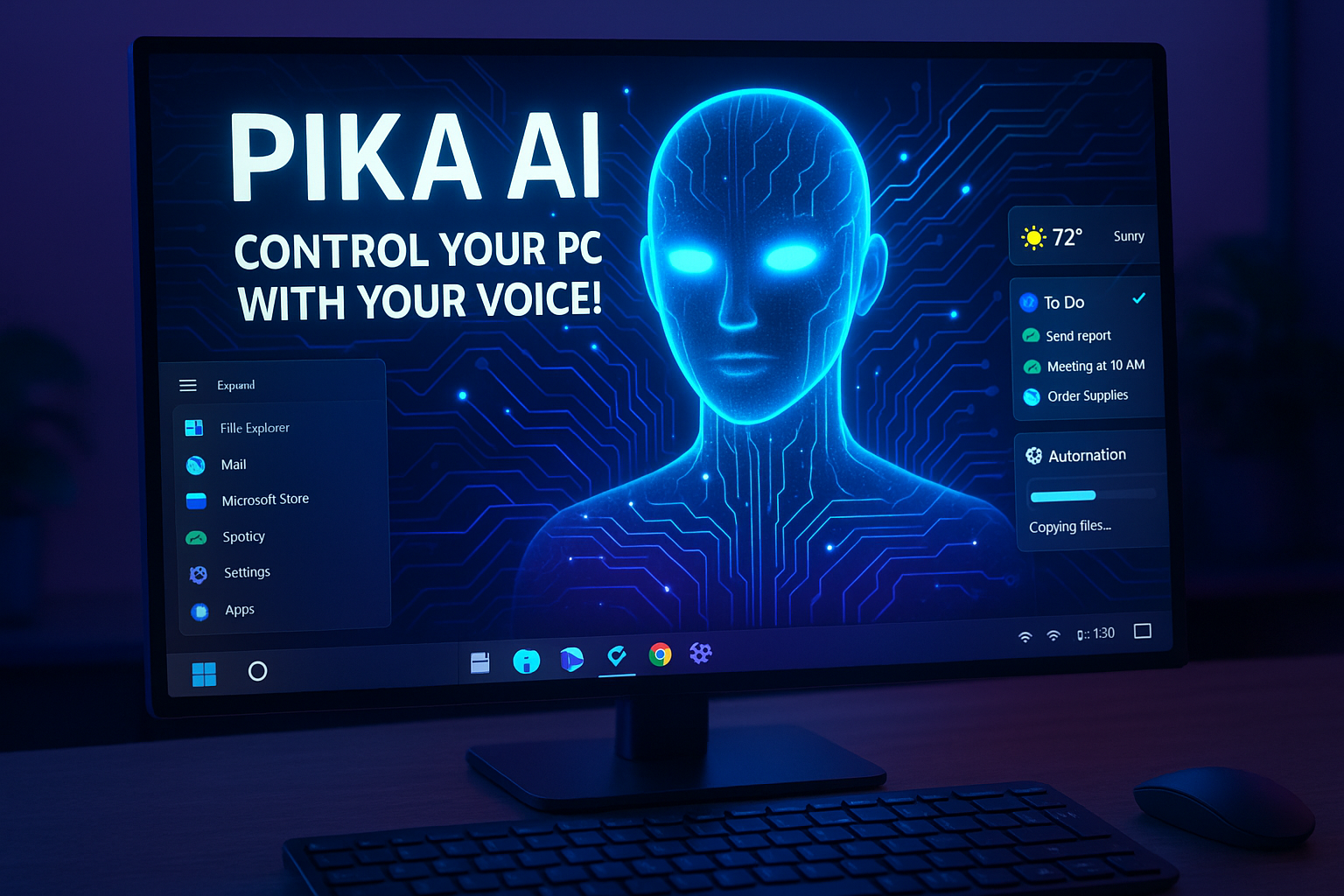Guyz in this ongoing competition of different AI assistant lets find out which one is cooking. Today we are gonna discss about the most pupular AI assistant. So lets get to the topic already . Two names stand head and shoulders above the rest: Amazon's Alexa and Google Assistant. These digital pioneers, backed by the technological prowess of Amazon and Google respectively, have revolutionized how we interact with technology, offering unparalleled convenience and efficiency at our fingertips (or rather, at the sound of our voice).
The rise of smart home technology has been nothing short of meteoric. From smart lighting and thermostats to security systems and entertainment hubs, homes are becoming increasingly connected. According to Statista, the smart home market is projected to reach $408.9 billion by 2027. This surge is fueled by the desire for efficiency, convenience, and enhanced entertainment experiences, making virtual assistants like Alexa and Google Assistant more critical than ever. They act as the central nervous system of our smart homes, orchestrating a symphony of connected devices with simple voice commands.
The objective of this article is to cut through the marketing hype and deliver an unbiased, side-by-side comparison of Alexa and Google Assistant. Our goal is not to declare a definitive winner, but to provide you with the information needed to make an informed decision based on your unique needs and preferences. We will delve into the functionalities, performance, and user experience of each assistant, examining their strengths and weaknesses to help you choose the virtual companion that best fits your digital lifestyle.
Core Differences
To truly understand the landscape of virtual assistants, it’s crucial to dive into their core differences. These distinctions highlight the unique strengths and weaknesses that set Alexa and Google Assistant apart.
Responsiveness
Responsiveness, or how quickly and accurately a virtual assistant responds to your commands, is a cornerstone of user experience. It's one thing to issue a command, but the assistant’s reaction time significantly impacts user satisfaction.
Alexa and Google Assistant employ sophisticated voice recognition technology, but their approaches differ.
Alexa tends to require more specific command phrasings. However, it compensates with a wider range of wake words: "Alexa," "Computer," "Echo," "Amazon," or even "Ziggy." This flexibility allows users to choose the wake word that feels most natural to them.
Google Assistant, on the other hand, excels at understanding context and natural language. It can often decipher your intent even if you don't use precise phrasing. It is also adept at handling multiple commands in a single sentence, a feature we'll explore further in a later section.
Benchmark tests from credible tech reviews consistently show that Google Assistant has a slightly faster response time, particularly when answering complex queries. User testimonials often echo this sentiment, with many users noting that Google Assistant feels more "natural" and less robotic in its interactions.
To illustrate this, consider a simple request: "What's the weather like today?" Google Assistant typically delivers the information almost instantaneously, often providing additional details like the high and low temperatures, humidity, and a brief forecast. Alexa, while providing the same basic information, may take a fraction of a second longer to respond and might not offer as much contextual data.
(Imagine a graph here with two bars: one for Alexa and one for Google Assistant, showing Google Assistant having a slightly shorter response time.)
Skills and Actions
The capabilities of a virtual assistant are largely defined by its "skills" (in Alexa's terminology) or "actions" (in Google Assistant's). These are essentially add-on abilities that allow the assistant to perform a wide range of tasks, from playing music and setting alarms to controlling smart home devices and providing information.
Alexa boasts a vast ecosystem of skills, reportedly exceeding 100,000, developed by both Amazon and third-party developers. These skills cover a wide spectrum of categories, including:
- Entertainment: Playing music, podcasts, audiobooks, and controlling streaming services.
- Home Automation: Controlling lights, thermostats, locks, and other smart home devices.
- Productivity: Setting reminders, creating to-do lists, managing calendars, and sending emails.
- Information: Providing news updates, weather forecasts, sports scores, and answering general knowledge questions.
- Games: Playing trivia games, interactive stories, and other voice-based games.
Google Assistant's "actions" are equally diverse, though the exact number is more difficult to quantify. While Google doesn't publish a specific number, they claim over a million actions, including first- and third-party queries. A significant advantage of Google Assistant is its native integration with YouTube, making it seamless to control video playback and search for content on your TV or other Google Cast-enabled devices.
To illustrate the range of skills and actions, consider these popular examples:
| Category | Alexa | Google Assistant |
|---|---|---|
| Music | Spotify, Apple Music, Amazon Music | YouTube Music, Spotify, Apple Music |
| Smart Home | Philips Hue, SmartThings, Ring | Nest, Philips Hue, SmartThings |
| News | BBC News, NPR, CNN | Google News, NPR, CNN |
| Productivity | Todoist, Any.do | Google Tasks, Any.do |
| Food & Drink | Domino's, Starbucks | Google Express, Uber Eats |
Knowledge Base
The depth and breadth of a virtual assistant's knowledge base are crucial for its ability to answer questions and provide helpful information. In this area, Google Assistant has a distinct advantage, thanks to its integration with Google Search, the world's largest and most comprehensive search engine.
When you ask Google Assistant a question, it leverages the vast resources of Google Search to provide accurate and comprehensive answers. It can access information from websites, news articles, Wikipedia, and countless other sources to give you the most relevant and up-to-date information.
Alexa, while also capable of answering a wide range of questions, relies on a more limited set of information sources. While it can access information from Bing (Microsoft's search engine) and other sources, it doesn't have the same breadth of knowledge as Google Assistant.
Consider this example:
- Question: "Who won the Academy Award for Best Actor in 2020?"
- Google Assistant: "Joaquin Phoenix won the Academy Award for Best Actor in 2020 for his role in 'Joker.'" (Provides the correct answer with context.)
- Alexa: "The Academy Award for Best Actor in 2020 was won by Joaquin Phoenix." (Provides the correct answer but lacks the additional context of the movie.)
This seemingly small difference in context can significantly impact the user experience, making Google Assistant feel more informative and helpful.
However, it's worth noting that Google is currently phasing out Google Assistant on mobile devices, replacing it with Google Gemini, an LLM "AI" chatbot. Gemini offers generative AI capabilities but lacks some of the integrations of Google Assistant, which can affect its overall usefulness in certain situations.
To further illustrate this point, let’s try a trivia question:
- Question: "What is the capital of Australia?"
- Google Assistant: "The capital of Australia is Canberra."
- Alexa: "Canberra."
While both provide the correct answer, Google Assistant's response is more conversational and provides additional context, enhancing the user experience.
Multiple Commands
The ability to handle multiple commands in a single sentence is a significant differentiator between Alexa and Google Assistant. This feature, also known as "compound commands," allows you to perform multiple tasks simultaneously, streamlining your interactions with the virtual assistant.
Google Assistant excels in this area, allowing you to combine two commands in one sentence. For example, you could say: "Hey Google, turn on the living room lights and play my favorite playlist." Google Assistant will execute both commands seamlessly.
Alexa, on the other hand, doesn't natively support combining commands in one sentence. While it has a "Follow-Up Mode" that allows you to issue multiple commands in succession without repeating the wake word, it doesn't offer the same level of efficiency as Google Assistant's compound command functionality.
To illustrate this, imagine you're getting ready for bed and want to turn off the lights and set an alarm for the morning. With Google Assistant, you could simply say: "Hey Google, turn off the lights and set an alarm for 6:00 AM." With Alexa, you would need to issue two separate commands: "Alexa, turn off the lights" followed by "Alexa, set an alarm for 6:00 AM."
This difference in functionality may seem minor, but it can significantly impact the overall user experience, especially for those who frequently use their virtual assistant to perform multiple tasks.
Integrated Services
The seamless integration with various services is crucial for a virtual assistant's functionality. Both Alexa and Google Assistant offer integrations with a wide range of popular services, but there are some key differences.
Alexa defaults to Amazon Music for music playback, while Google Assistant defaults to YouTube Music. This is a natural extension of their parent companies' services. However, both platforms support third-party services like Spotify, Apple Music, and Netflix, allowing you to choose your preferred provider.
One notable difference is that Google offers YouTube Premium, which includes YouTube Music Premium, providing an ad-free listening experience and background playback. This can be a significant advantage for users who heavily rely on YouTube for music.
Another area where integration plays a crucial role is in calendar management. Both Alexa and Google Assistant can access your calendar and provide reminders, but Google Assistant's integration with Google Calendar is particularly seamless, allowing you to easily add events, check your schedule, and receive personalized recommendations based on your appointments.
To further illustrate this, consider these examples:
- Music:
- Alexa: "Alexa, play my workout playlist on Spotify."
- Google Assistant: "Hey Google, play my workout playlist on Spotify."
- Calendar:
- Alexa: "Alexa, what's on my calendar for tomorrow?"
- Google Assistant: "Hey Google, what's on my calendar for tomorrow?"
In both cases, the virtual assistants seamlessly integrate with the requested service, providing a smooth and intuitive user experience.
Google Cast
Google Cast is a technology that allows you to stream content from your phone, tablet, or computer to your TV or other compatible devices. It's a seamless and convenient way to share videos, music, and photos with friends and family. Google Assistant integrates natively with Google Cast, meaning that users can simply issue voice commands like “Hey Google, cast this video to the living room TV” or “Play my favorite playlist on YouTube.”
While Alexa does offer similar functionality through its Fire TV and Echo Show devices, the integration with Google Cast is generally smoother and more flexible, especially when it comes to non-Amazon devices. Google Assistant also supports a wider range of smart TVs, streaming sticks, and other entertainment platforms, making it a better choice for those looking to stream content across different ecosystems.
Smart Home Control
When it comes to smart home control, both Alexa and Google Assistant have robust integrations, but there are notable differences.
Alexa, thanks to Amazon's acquisition of Ring, offers tight integration with home security devices, smart doorbells, and other smart home products. Amazon also has a vast catalog of supported smart devices in its Alexa ecosystem, including thermostats, lights, plugs, cameras, and more.
Google Assistant, on the other hand, is more tightly integrated with Google's own smart home ecosystem, such as Nest thermostats, cameras, and smart speakers. However, it also works with third-party smart home products like Philips Hue lights and Samsung SmartThings. Google Assistant’s advantage here is its ability to offer more intuitive controls, especially with the native integration of Google Home, which provides easy management of all your connected devices from one central hub.
Example:
- Alexa: “Alexa, set the thermostat to 72 degrees.”
- Google Assistant: “Hey Google, set the thermostat to 72 degrees.”
In both cases, the commands work seamlessly, but Google Assistant often feels more conversational in its approach.
Pricing and Availability
When it comes to pricing, both Alexa and Google Assistant are free to use, with a caveat: you'll need to purchase the respective smart devices to access the voice assistants. However, the initial cost of purchasing an Alexa or Google-enabled device varies.
Amazon Alexa: Alexa is primarily accessed through Amazon Echo devices, which range from budget-friendly options like the Echo Dot to high-end devices like the Echo Studio.
Google Assistant: Google Assistant is typically accessed via Google Nest speakers or third-party devices that integrate Google Assistant, such as smart TVs, refrigerators, and car systems.
| Device | Price Range | Key Features |
|---|---|---|
| Amazon Echo Dot | $49.99 - $69.99 | Compact, budget-friendly smart speaker. |
| Amazon Echo Show | $89.99 - $249.99 | Display with Alexa, supports video calls. |
| Google Nest Mini | $49.99 | Compact, budget-friendly smart speaker. |
| Google Nest Hub | $89.99 | Display with Google Assistant, smart home control. |
| Amazon Echo Studio | $199.99 | High-fidelity sound with Alexa. |
| Google Nest Audio | $99.99 | High-quality audio with Google Assistant. |
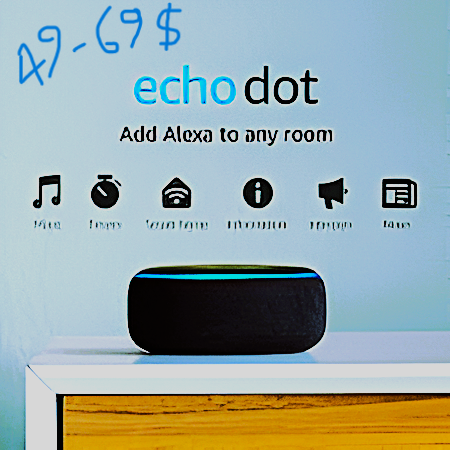
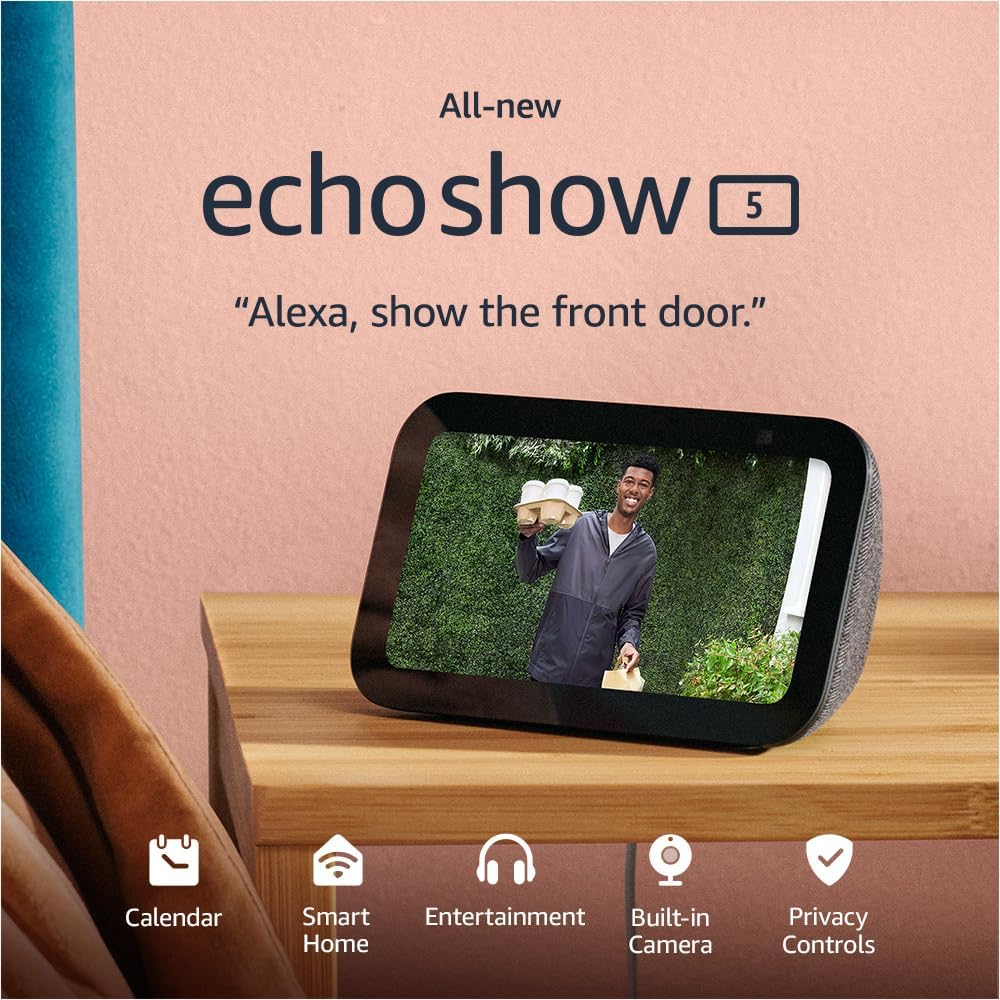
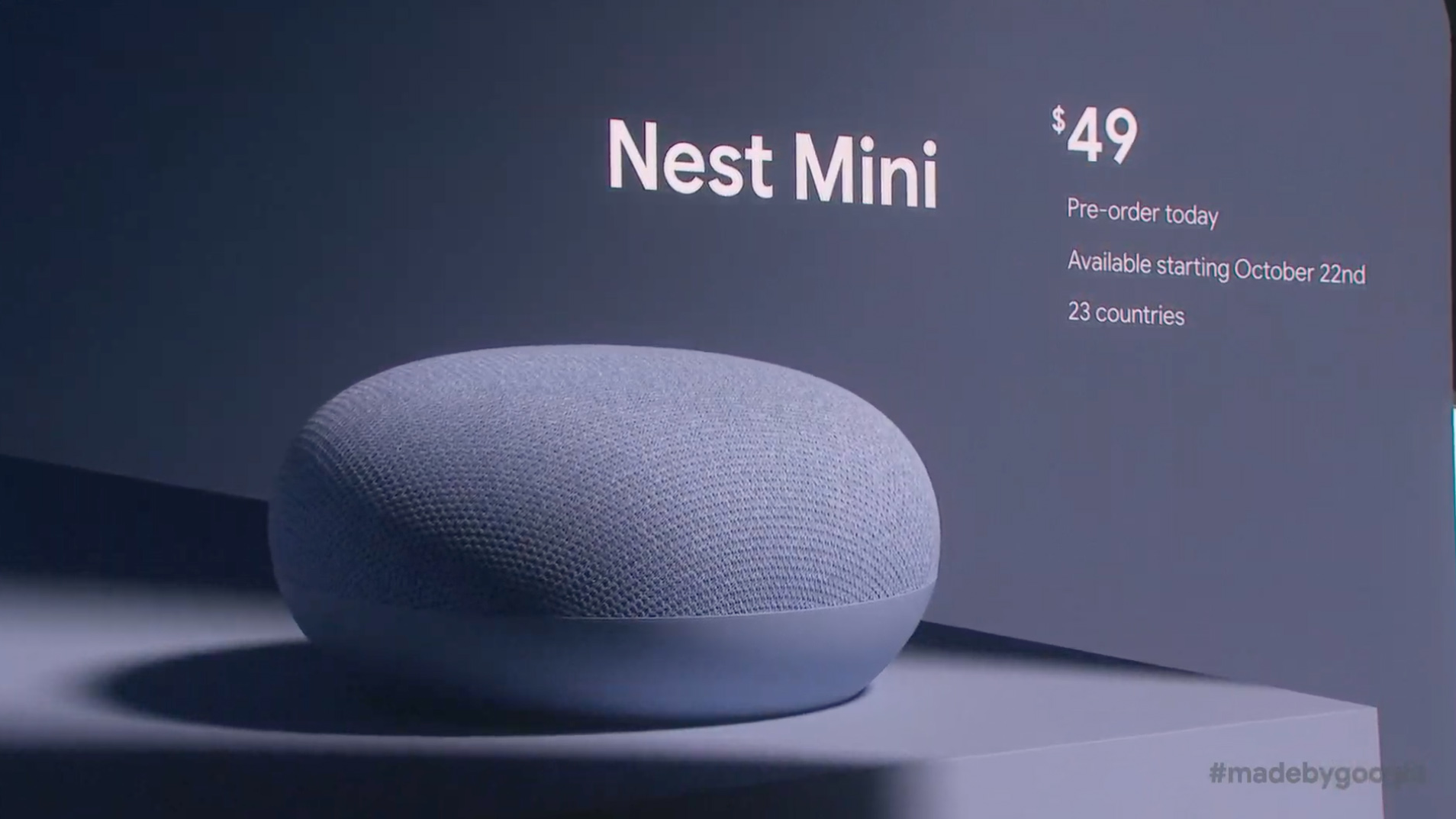
Which is Better for Phone?
For mobile devices, both Alexa and Google Assistant are available on Android and iOS platforms. However, there are some important distinctions:
- Google Assistant: Being deeply integrated into Android devices, Google Assistant is typically faster, more responsive, and better able to handle context-based queries. It's available on all Android phones by default and also works well on iPhones via the Google Assistant app.
- Alexa: Alexa is also available on Android and iOS, but it’s not integrated as deeply into the OS. For instance, you cannot trigger Alexa with voice commands when your phone is locked on Android (unless you’re using the Alexa app actively). However, Alexa shines with smart home integration and Amazon services.
Frequently Asked Questions (FAQs)
- Q1: Can Alexa and Google Assistant be used without an internet connection?
- A: Both Alexa and Google Assistant require an active internet connection to function, as they rely on cloud-based services for processing voice commands and providing responses.
- Q2: Which assistant is better for smart home control?
- A: Both Alexa and Google Assistant are excellent for smart home control. Alexa supports a larger range of devices and services, but Google Assistant offers a more intuitive and conversational experience, particularly with Google’s own smart devices.
- Q3: Which is better for music streaming?
- A: Both Alexa and Google Assistant support major music streaming services like Spotify, Apple Music, and Amazon Music. However, Google Assistant has the advantage with YouTube Music and is more tightly integrated with YouTube, making it a better option for video content.
- Q4: Can I use Alexa and Google Assistant together?
- A: While they don’t natively integrate, you can use Alexa and Google Assistant together in a multi-assistant setup, provided you use devices that support both ecosystems. However, it’s not the most seamless experience, as they operate in separate ecosystems.
- Q5: Which is more secure?
- A: Both Alexa and Google Assistant have robust security features like voice recognition, two-factor authentication, and encryption. However, Google Assistant has a slight edge due to Google’s overall security infrastructure and its frequent updates. Amazon, however, provides detailed privacy controls for Alexa that are easy to adjust.
Conclusion
Both Alexa and Google Assistant have their strengths and weaknesses, but when it comes to choosing the right virtual assistant, it all boils down to your personal preferences and the ecosystem you're invested in.
Alexa is fantastic for smart home control, extensive third-party integrations, and a large selection of skills.
Google Assistant excels with its superior voice recognition, better integration with Google services, and a more conversational approach to commands.
Ultimately, the choice between Alexa and Google Assistant will depend on your needs: Are you looking for a highly integrated smart home experience? Alexa might be your best bet. Are you someone who values fast, accurate answers and excellent contextual understanding? Then Google Assistant could be the virtual assistant for you.

